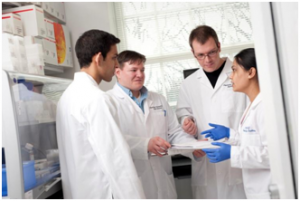Any new medicine or medical device is required to go through a testing procedure before being used by patients. This process is necessarily a strict and thorough one, aimed at protecting the public from dangerous or bogus treatments or practices. This may involve clinical studies and adaptive phase 1 studies like those that are carried out and reported on by https://www.richmondpharmacology.com/specialist-services/adaptive-phase-i-studies. These studies will look at a particular disease or illness and the effectiveness of particular drugs or treatments on these.

However, despite the best efforts of those in charge of such procedures, there are times when the results of medical trials – required for most new drugs – are not quite what they seem.
In fact, it is worryingly easy for those conducting medical trials to cheat, skew results or to commit downright fraud in order to achieve their own ends.
According to Global Research, trials can be rigged in a dozen ways, and it happens all the time. This is why professional companies such as the one mentioned above will ensure that strict procedures and protocols will be set in place for any trials that take place.
The ethical way
What is supposed to happen in a clinical or medical trial is that any study is carried out in an unbiased way, with fair controls. Usually, this means having two comparable subgroups of patients, one being treated with the drug being tested, the other being treated with a control treatment. After a certain length of time or number of treatments, the two groups can then be compared, and the trial results published. In this way, it is generally easy to see whether the treatment worked, or whether some other factors need to be taken into account.
The unethical way
Unfortunately, not everyone conforms to the idea that ethics matter. Drugs companies want the outcome of their trials to be in their favour, and they can ensure this happens in numerous ways.
Outright fraud – in which trial results are fabricated, or changed to give a positive outcome – is one of the most obvious methods, although also the most risky, as if they are caught the penalties could be severe.
Another way is through subtle adjustment of figures which fail to deliver the correct outcomes, or by leaving out negative results, thus skewing the overall impact of the trial.
Yet another method used by disreputable firms wishing to produce the ‘correct’ results, is conducting a study which cannot possibly deliver the wrong one – fixing the trial before it even starts by ensuring a biased method is used.
